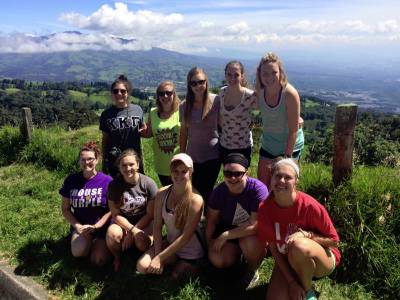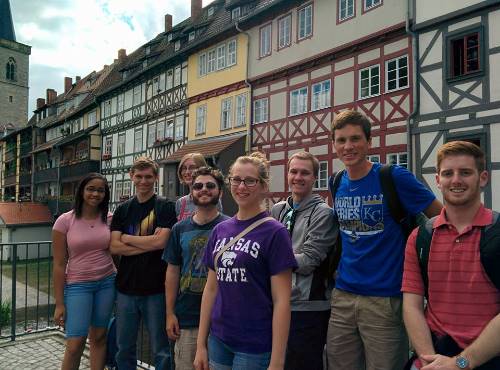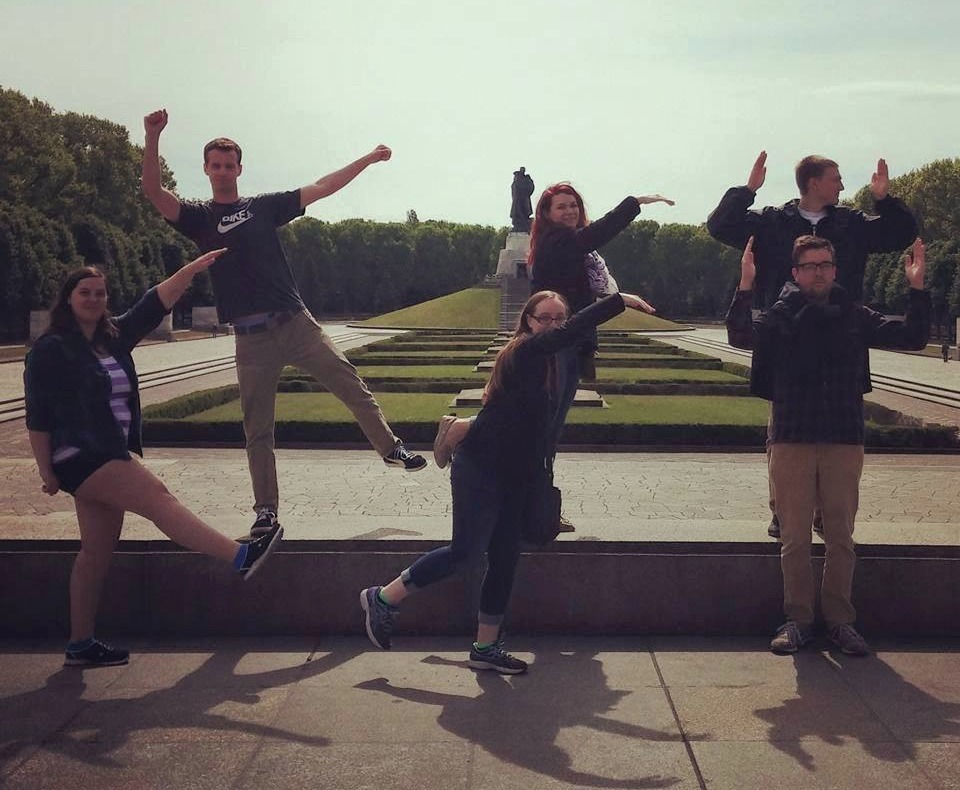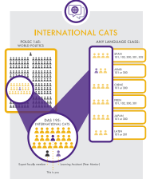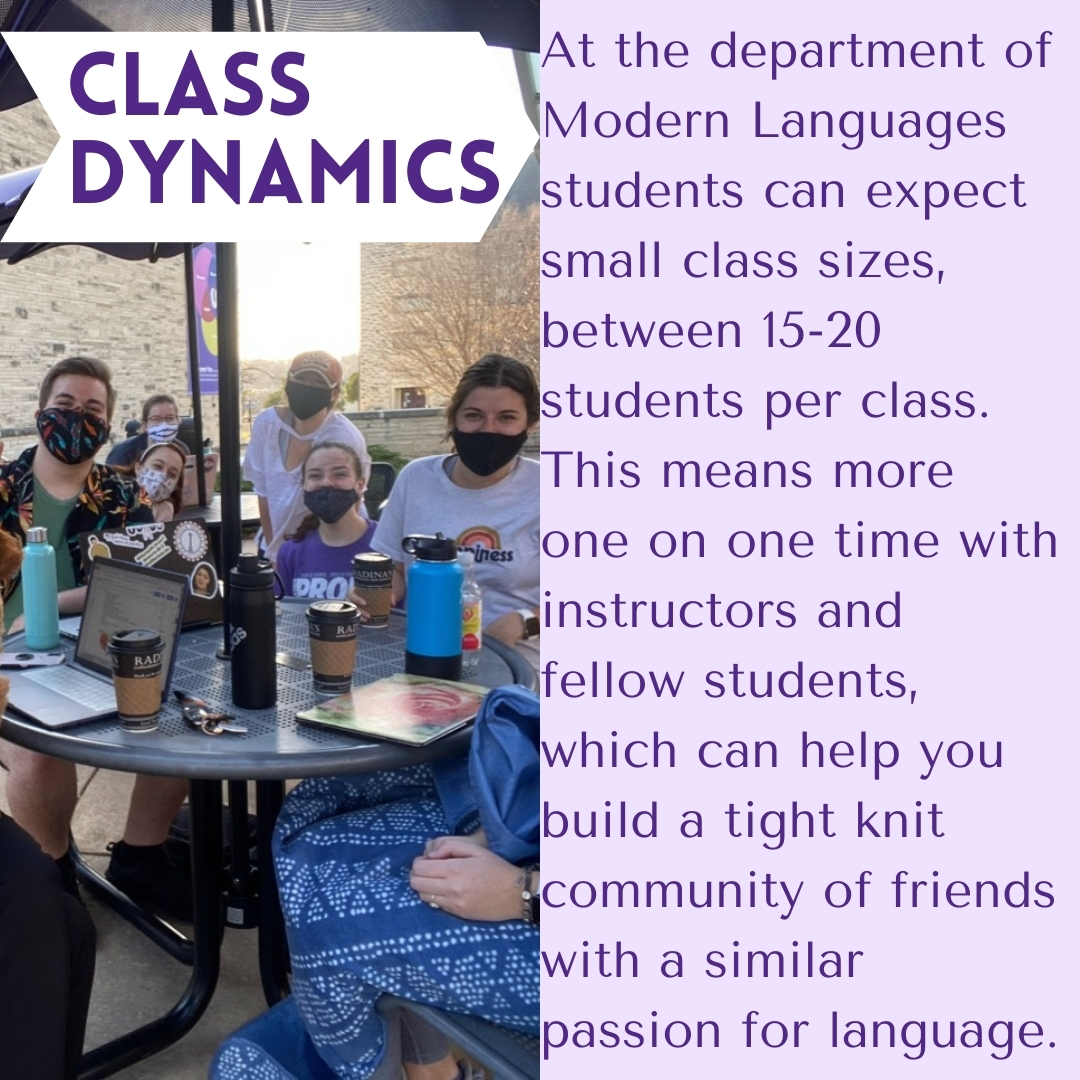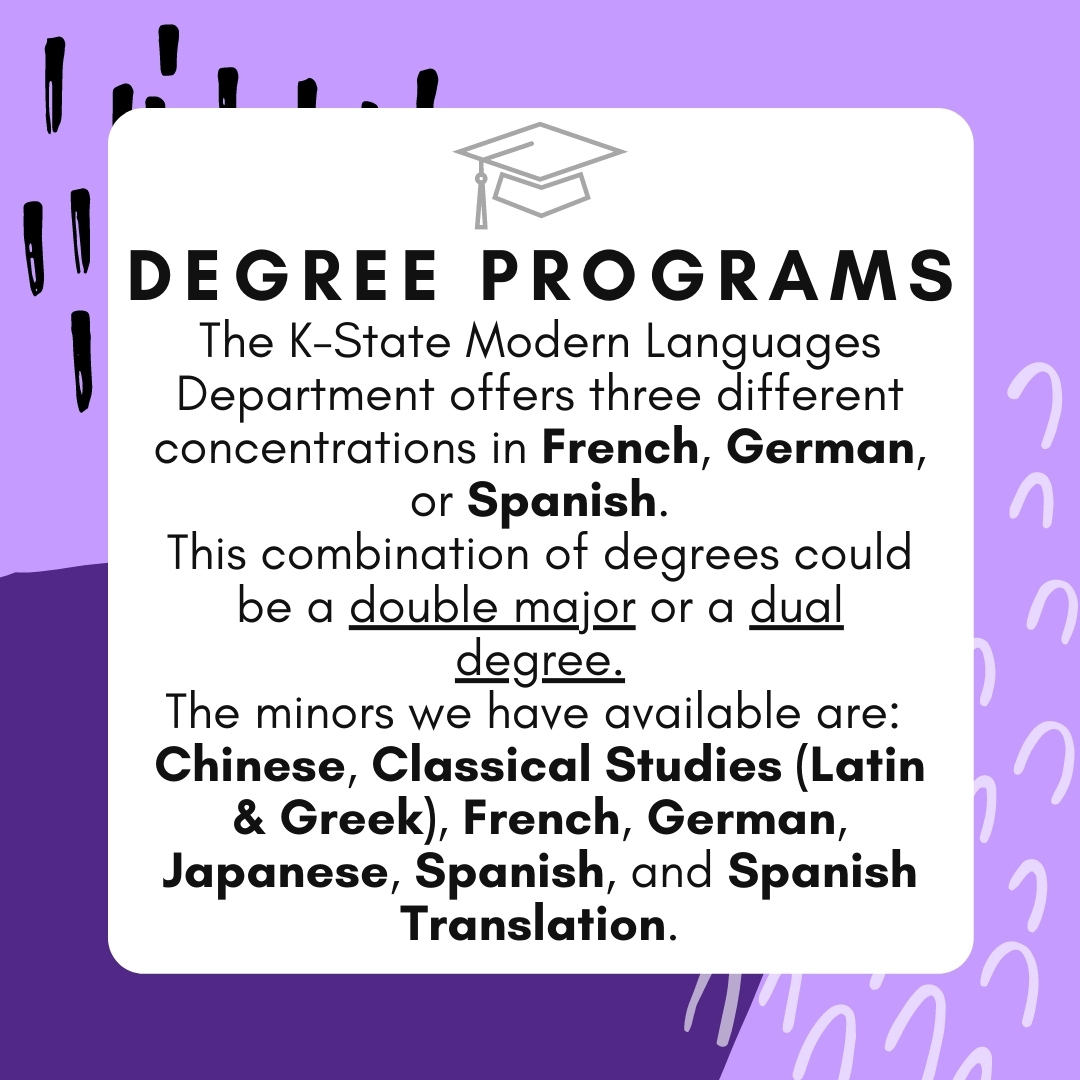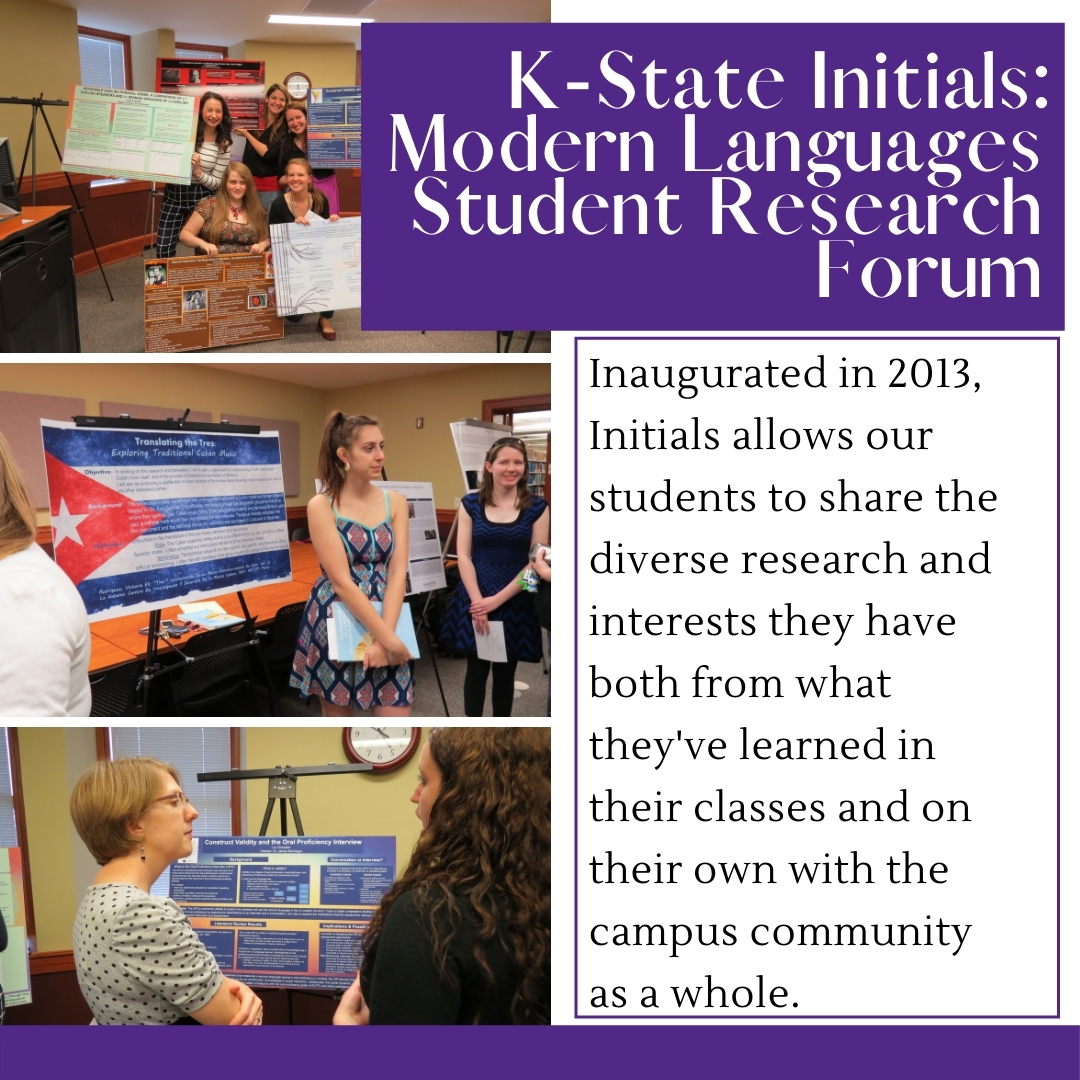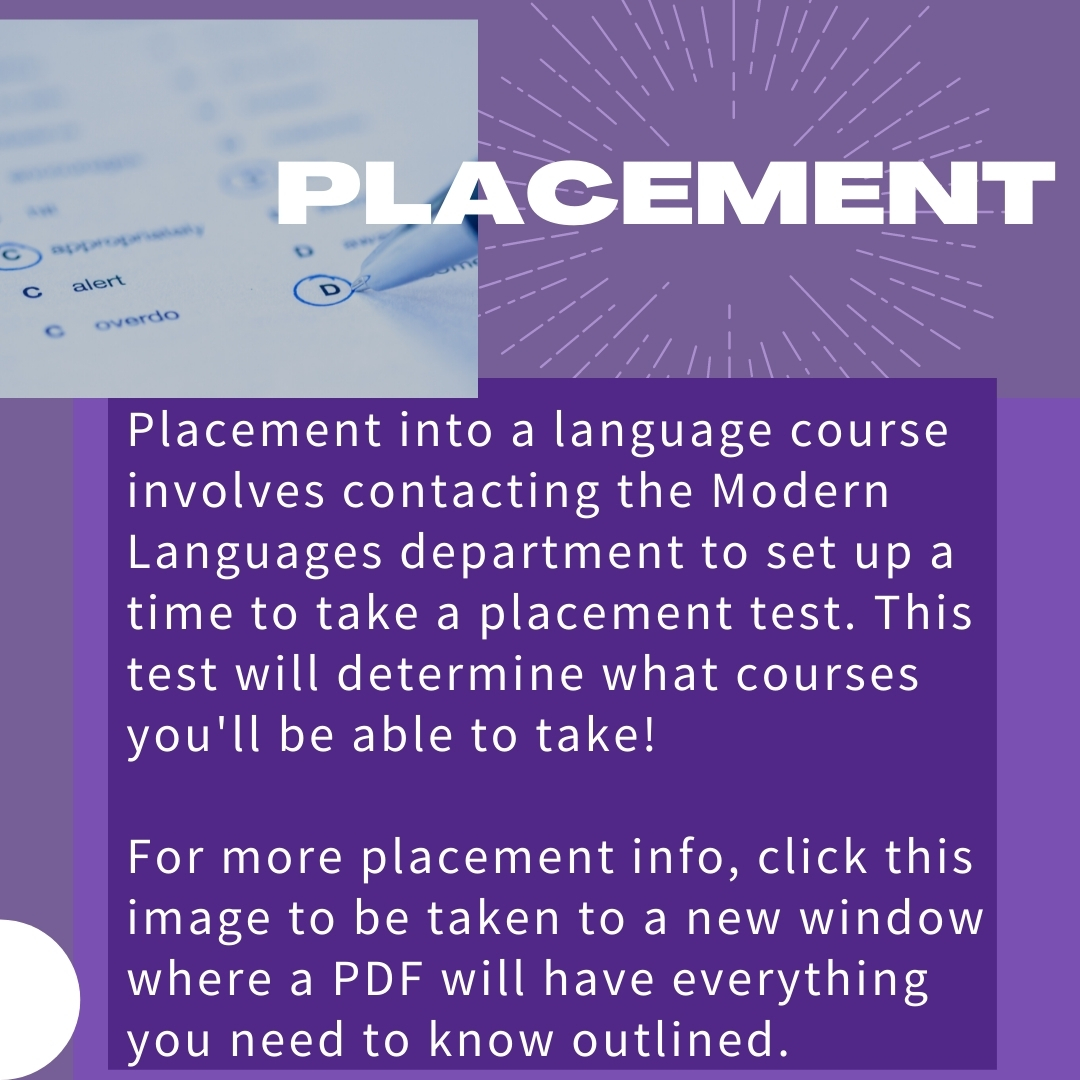Language Placement Information
Questions about language placement? Minoring or majoring in a language?
- Contact us at modlang@ksu.edu
- Prepare for your language placement:
- Students are encouraged to meet with a language advisor for placement, but may consult our language placement guide to assist them and advisors in selecting the appropriate course(s).
- See our Prospective Students or our Programs & Courses @ a glance pages for more info, and our Fall 2023 schedule here.
"People who major in the humanities or liberal arts gain very valuable skills, especially in writing, organizational, communications, and critical thinking skills. These skills are highly prized by potential employers. A major in these areas can prepare you for a wide variety of jobs."
-Bureau of Labor Statistics and the Career Center
Click any of the tiles below to find out more!
Note: You may be taken to another website in your quest for more information.
Look through our Undergraduate Studies Section for more detailed information about our programs
Language Placement
Entering students interested in taking a language should work with their advisor to review the placement guide and select the most appropriate course for their previous language experience. Students with no previous experience should enroll in the 101 section of the language. If you are uncertain about what to take, please join us during Orientation and Enrollment via Zoom. Please direct any questions to the Department of Modern Languages.
Students placing into a higher level and successfully completing the course with a "C" or better, will receive retroactive credit for the preceding course in the language sequence (101-301) for FREE, on a "take one class/ receive credit for one class" basis, thus completing the language course sequence quicker.
Why should I learn another language?
Thousands of K-State students have recognized the value of pairing a degree in agriculture, engineering, architecture, physics, journalism and many other fields with a second language to enhance their career plans. Students in Modern Languages may become teachers, translators, interpreters, or language consultants. Many graduates also pursue careers in travel and tourism, computer and software services, project management at a variety of national and international companies, advertising and marketing, social and health services, or legal fields, as well as many positions in the State Department and other areas of government. For more information about possible careers for Modern Languages students, please visit the Career Center, and check the salary offers for K-Staters in Arts & Sciences.
Knowing a language makes you a stronger candidate for many prestigious scholarships such as:
- David L. Boren Scholarship: Study abroad in underrepresented countries; emphasis on national security/national interests;
- Critical Language Scholarships: Comprehensive funding for overseas summer program focused on critical languages;
- DAAD Scholarship - German Academic Exchange Service: Funds various awards for study/research in Germany;
- Freeman - Asia: Funds study in East or Southeast Asia for students with financial need;
- Fullbright and Fullbright Summer Institute: program at one of ten sites in the United Kingdom. (Read about Hannah Rogers' experience);
- Gilman International Scholarship: Up to $5000 for study abroad for Pell Grant recipients;
- Killam Fellowships Program: Study in Canada for one or two semesters;
- Phi Kappa Phi Study Abroad Grant: $1,000 to support study abroad in any country.
(For details about these scholarships, please see the Office of Nationally Competitive Scholarships)
What languages can I study and how do I enroll?
Modern Languages offers courses and programs in Arabic, Chinese, Classical Studies, French, German, Japanese, Russian, and Spanish. All languages are offered from true beginners to advanced levels, and each class is designed so that students advance in reading, listening, writing, speaking, and cultural proficiency.
During June Orientation & Enrollment 2020, we will have open language placement advising so a faculty member can help you with the placement test (if needed) and talk to you about which courses you should enroll in, our programs, and study abroad opportunities. We will be available each day from 1:00 to 4:00 pm via Zoom:
Modern Languages O&E Advising:
https://ksu.zoom.us/j/95224193894
Being placed in the correct level is very important as it allows you to move through language courses quicker, and if you can test into a higher level and successfully complete the course with a "C" or better, you will receive retroactive credit for the preceding courses for FREE, on a "take one class/ receive credit for one class" basis, and you can finish your Spanish course sequence more quickly as well. All you have to do is fill out a form in the Modern Languages Office (Eisenhower 207).
Levels I and II (101, 102) of each language introduce the structure of the language and provide ample opportunity for practicing the spoken language, including additional experience in the language laboratory. | Levels III and IV (300, 301) provide a continuation of Level II with practice in the spoken and written language. May include intensive grammar review as well as an introduction to reading the modern prose of the respective language. | Courses on the 400-500 levels refine the speaking, listening, writing and reading skills. Conducted entirely in the foreign language, these courses attempt to build the confidence of the student in using the language while simultaneously increasing his or her knowledge in specific areas of language, literature and culture. They include courses on composition and civilization as well as introductions to the literature of the respective language. |
Can I get credit for my high-school or other college language courses? What about AP, IB, CLEP, Seal of Biliteracy?
During June Orientation & Enrollment, our language advisors will evaluate your language skills, so that you can enroll in the correct course for your competency level, and also help you with your high school or other college language transfer credit.
- If you have taken a language in high school, chances are you can start at K-State at level 2 or above. Through retroactive credit, you can earn *FREE* credit for that language.
- If you earned a Seal of Biliteracy Certificate in high school and received the Silver Seal (Intermediate Mid), you will start with the fourth semester of the language sequece (for example, SPAN 301, Spanish 4). If you received the Gold Seal (Advanced Low), you will start with fifth-semester courses at the 400 or 500 level (ex: SPAN 410 (Spanish Composition and Grammar). In both cases you will be able to receive retroactive credit (free credit) for the previous levels (Spanish 1 through 3 or 4) once you've completed Spanish courses at K-State (one course for one course).
- You can receive credit for your high-school language if you take the AP, IB or CLEP exam. Please check K-State transfer information for these exams.
- You can also transfer language credit from another college, please visit the Transfer Information page and check your Transfer Credit Report through KSIS.
Are there any language CAT Communities, First-Year Seminars, or Honors Courses?
In partnership with K-State First, Modern Languages offers a variety of courses designed specifically for freshmen to support them in their first semester or year in college. These courses allow students to form connections with other students and faculty members through small courses (average size is about 20 students). For Modern Languages specific programs, students will learn more about a variety of cultures and languages, as well as the practical applications and positive impact of learning a language on their future careers.
For more information about First-Year Seminars, CAT Communities, application, list of programs and requirements, please visit K-State First.
Can I study abroad?
We strongly encourage our students to study abroad. Our faculty offer regular short faculty-led programs to Costa Rica, France, Germany, or Spain, and are planning to develop more. The Office of International Programs also offer a great variety of programs ranging from a week to a semester or academic year, some include community service program, or homestays with host families. Whichever program you choose, one of our faculty will go over how credit earned abroad will transfer back to K-State and apply to your minor or major. Studying abroad can be fun, exciting, and separate you from others on the job market.
